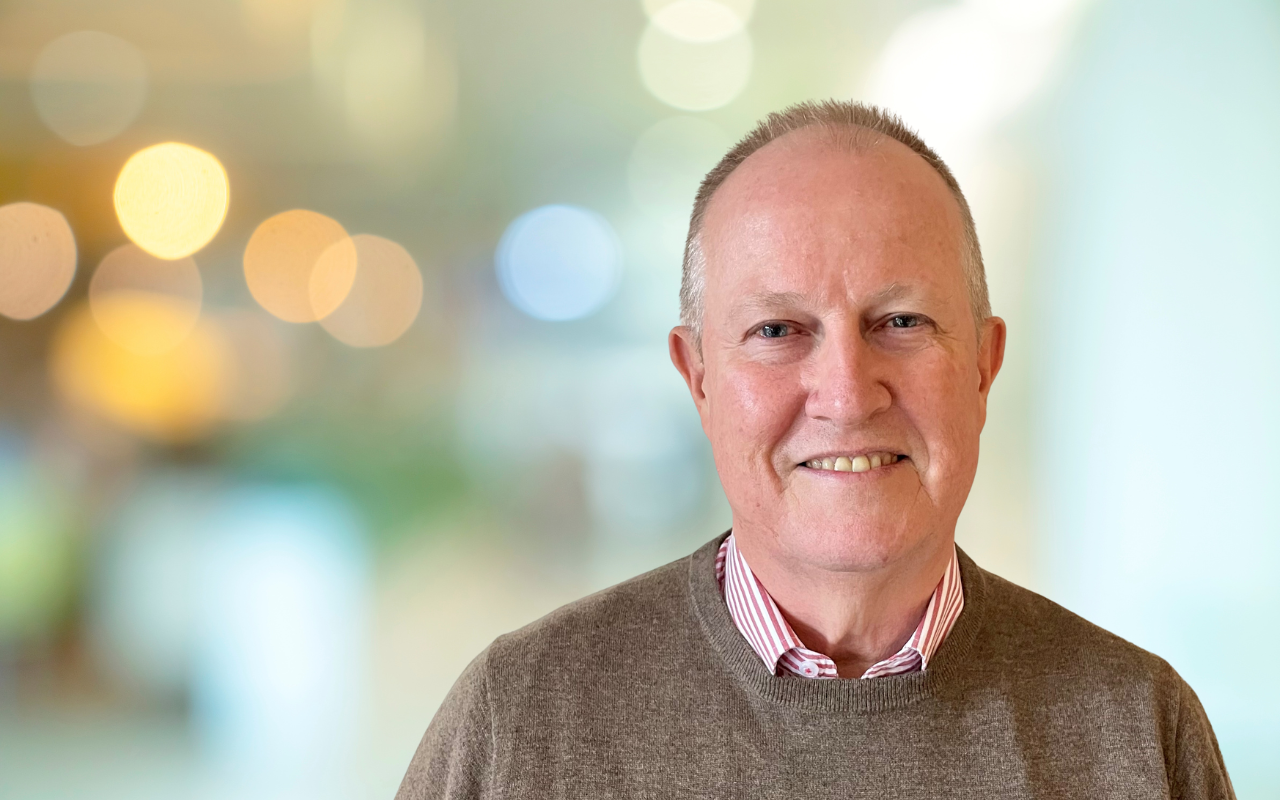It has been a difficult 20 years in the treatment of menopause, but now some education groups and new initiatives are leading the way.
Menopause is a natural stage of a woman’s life. Some breeze through, for others it is misery. Many will have significant hot flushes, which can cause brain fog and insomnia; some wake every 30 minutes.
By age 60 years, most menopausal women will have vulvovaginal atrophy, making intercourse painful and increasing the risk of urinary tract infections and other bladder problems.
One of the biggest problems is heightened depression and anxiety, which has been addressed by Professor Kulkarni in a previous issue of InSight+.
There is at least a tenfold increased risk of depression and anxiety. Some women will have panic attacks for the first time in their life. Few are offered the best treatment, which is menopausal hormonal treatment (MHT).
“Not coincidentally, suicide rates for women also are highest in the 45–64 age group,” Professor Kulkarni wrote.
I have seen many women over the years who had the “unholy triad” of postnatal depression, pre-menstrual dysphoric disorder, and then depression at menopause.
The past 20 years have been a miserable time for some women going through menopause, with many not receiving the treatment they need.
Some influences have been negative but there has also been some recent good news. I will discuss the negative issues first and then end with the good news.

A neglected condition
Menopause is a much-neglected condition in Australia which can affect the woman, her partner and family, and even the workplace. The Australia Institute of Superannuation Trustees has estimated that menopause costs the economy over $35 billion a year.
Of women who need treatment, probably less than one in five get any treatment, often a selective serotonin reuptake inhibitor rather than MHT.
I have talked to many doctors about this. The main reason is the urban myth that MHT causes breast cancer. Of course the origin of this was 20 years ago and the dramatic press release linked to the Women’s Health Initiative (WHI) where women were exhorted to “stop their HRT [hormone replacement therapy] and see their doctor”. All this was due to eight extra breast cancer cases per 10 000 women per year (not statistically significant).
The current state of play has been aptly summarised recently by Pinkerton and colleagues: older MHT regimens containing synthetic progestins, such as used in WHI, probably slightly stimulated the growth of existing tumours. Oestrogen only MHT (for seven years) and MHTs containing micronised progesterone appear to have little or no effect on breast cancer risk. Women who develop breast cancer on MHT have improved survival.
I’ve also noticed over the past 20 years, many of the women I talk to have a very negative attitude towards menopause. Many aged 45–55 years tell me that they are too young to be going through menopause (even though the normal range for menopause is 40–60 years) and they are shocked by their own ignorance about this phase of life. A type of “ageism” has crept into Australian culture too.
Perimenopausal women often say to me, “I’m now old!”. And they mean it in a derogatory way. I didn’t hear this 20 years ago. Our group at the Royal Hospital for Women, Sydney, has done quite a lot of cross-cultural research over the years and I’ve worked in aboriginal health for ten years. Among most First Nations cultures, menopause is revered as the getting of wisdom and viewed very positively. An elder in these cultures is held in high regard.
Sometimes, the mainstream media don’t seem very interested in encouraging a positive attitude to menopause either. In October 2022, the Menopause Hub Project (I’ll discussed that in detail shortly) was launched at the Royal Hospital for Women in Sydney. Then Minister for Women, the Hon Bronnie Taylor, came with the then Treasurer. Over a dozen media outlets came. All the journalists were female. After the preliminary talks, the journalists were invited to ask me questions about menopause. I was asked one question. After that, all the questions were about the upcoming election.
Difficulty of accessing the right treatment
Premature ovarian insufficiency is often associated with a delay in diagnosis and treatment. Up to 4% of women under 40 years of age can be affected. This doesn’t include young women made menopausal by chemotherapy and radiotherapy.
For example, I became aware of a case of a person who became menopausal at age 30 years following successful chemotherapy for lymphoma. They had flushes and sweats, had vaginal atrophy, and had several osteoporotic fractures. Nowhere on their treatment journey had a specialist recommended they see a gynaecologist or take MHT. Untreated premature ovarian insufficiency is linked to osteoporosis, premature heart disease, and some neurological conditions. Interestingly, these women have a reduced risk of breast cancer.
Another problem is that many of our best MHTs are not on the Pharmaceutical Benefits Scheme (PBS). Disadvantaged women can’t afford many of our MHTs. For example, tibolone and progesterone regimens are not listed in the PBS. Our politicians talk about equality; here is a glaring example of inequality in health care. Australia was the first country in the world to approve a testosterone product for women (AndroFeme 1%). The product was invented (Lawley Pharmaceuticals in Perth) and tested in Australia; much of the work was performed by Professor Sue Davis and her team in Melbourne. AndroFeme can improve sexual function in post-menopausal women. Retail cost? About $100. The male testosterone product? That’s on the PBS. How is that possible?
Then, we have the poor availability of patches. Supply of Estradot (Novartis) patches have been on and off for ten years. Estalis (Novartis) patches have supply problems too. Climara (Bayer) is being discontinued. Patches (and gels) have a reduced risk of thrombosis compared with oral oestrogen. Does the pharmaceutical industry care about women?
So, what is the good news?
Some good news
The Menopause Hub project was set up and funded by the previous New South Wales Government and was the “brain child” of the Hon Bronnie Taylor, National senator and former country breast care nurse. The scheme is supported by the current NSW Minister for Health, the Hon Ryan Park, NSW Minister for Women, the Hon Jodie Harrison, and Dr Michael Holland, an obstetrician and gynaecologist and NSW Parliamentary Secretary for Health.
Forty million dollars over four years were allocated to set it up and the continuing funding were allocated at the time when it was announced June 2022. The project has been established as a “hub and spoke” model; the Royal Hospital for Women, Royal North Shore, and Campbelltown hospitals (and somewhere in Hunter New England) have been chosen as hubs. There will be an expansion of not just medical services but also paramedical professionals. There will be spokes in country NSW which will communicate through teleconferencing back to their Hub.
There will be three aspects to this project.
The first is education. Dr Amanda Beech from the Royal Hospital for Women, Sydney, is heading a team designing an educational program for women and another for doctors (MenoECHO) to give them access to accurate information about menopause and its treatment. For health professionals, mostly GPs, a website is being designed with a frequently asked questions section for health professionals and an email service to ask questions directly to our specialists.
Second, we will have “well women” clinics: face to face and teleconference clinical appointments for well women to talk to a menopause specialist. We hope this service will decrease over time as more of these patients are seen by their GP.
Third, “complex case clinics”: for menopausal women who have had medical issues (thrombosis, cancer, early menopause, children who are menopausal (eg children who have survived cancer but the chemotherapy and / or radiotherapy made them menopausal), migraine, severe hormonal mood disorders).
Final thoughts
It has been a terrible 20 years for some menopausal women. However, there is hope. I am encouraged that several state and federal politicians are interested in this important issue. Educational groups such as Jean Hailes and the Australasian Menopause Society and new initiatives such as the NSW Menopause Hub project are leading the way.
Dr John Eden is a reproductive endocrinologist and gynaecologist. He is a Conjoint Associate Professor at the University of New South Wales in Sydney. He is a visiting medical officer at the Royal Hospital for Women, Sydney, where he is Director of the Sydney Menopause Centre. Until recently, he worked at the Moree Aboriginal Health Service. He is a member of the Breast Cancer MDT at the Prince of Wales Hospital, Randwick. He is on the executive committee of the NSW Health Menopause Hub project and is a co-chair.
The statements or opinions expressed in this article reflect the views of the authors and do not necessarily represent the official policy of the AMA, the MJA or InSight+ unless so stated.
Subscribe to the free InSight+ weekly newsletter here. It is available to all readers, not just registered medical practitioners.
If you would like to submit an article for consideration, send a Word version to mjainsight-editor@ampco.com.au.

 more_vert
more_vert
What about women with poor absorption of transdermal who can’t take tablet form – it’s very hard to get prescribed above the recommended amount and some women need a higher amount to feel normal and functioning
Ditto to all the above: THANK YOU Dr Eden
Great article. The Hunter New England hub is based at John Hunter Hospital in Newcastle.
My views on this subject, based on 54 specialist years, are in my article: What does the medical system do wrongly when we treat vulvovaginal complaints? AJGP Vol. 52, No. 7, July 2023
Thank you, John Eden, for being a champion in this space for decades. At times, there were very few voices apart from us GPs in the medical wilderness of menopause, and you were one. It’s been a long and lonely battle to get women the treatment they deserve, and you’ve always been at the forefront
Thank you
Louise
HRT seems to be the best preventative of osteoporosis for women. This enormous benefit to long term health is too often ignored.